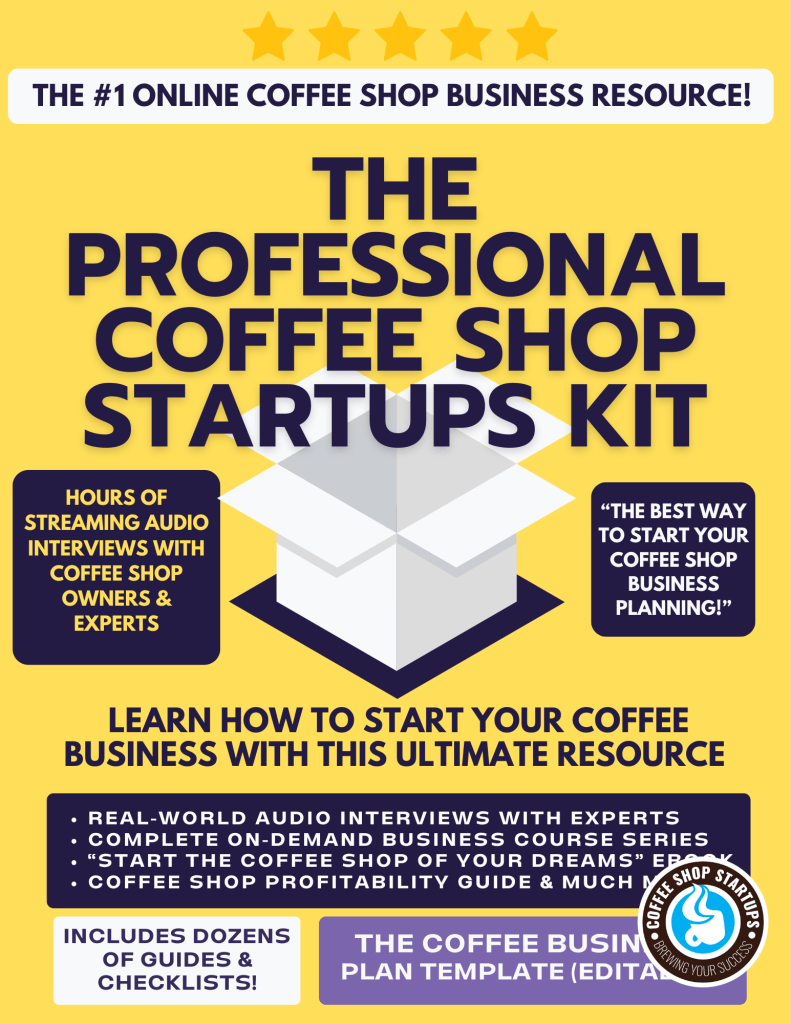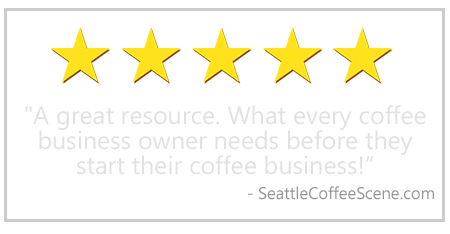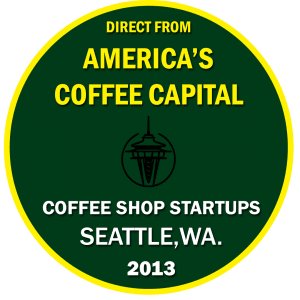Should You Serve Alcohol at Your Coffee Shop?
Should You Serve Alcohol at Your Coffee Shop?
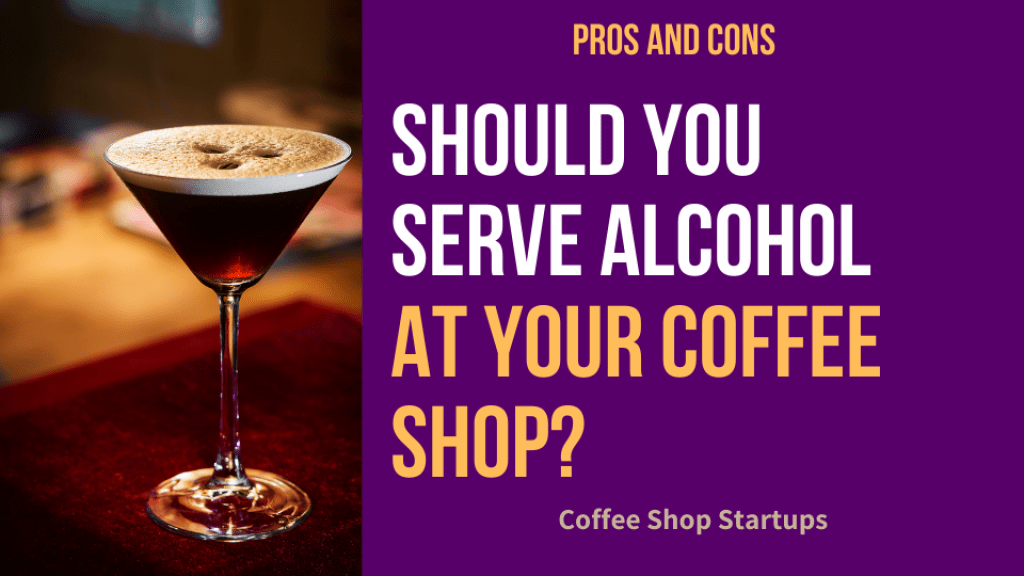
Should You Serve Alcohol at a Coffee Shop?
Adding Alcohol to Your Coffee Menu May Improve Sales, But Comes With Strings
One of the fun parts of starting a coffee shop is your menu planning.
Your coffee shop menu plays a crucial role in so many elements of your coffee business – from your coffee equipment, your space requirements, working with wholesale coffee suppliers, your barista hiring and training, and your relationships with your local health department.
Your menu will ultimately play a significant role in differentiating your coffee shop from your competitors.
By offering unique items for sale, you can work to separate your coffee business from your local competition.
Some of you may also be interested in serving alcohol at your coffee shop, which is not uncommon. But if you decide to serve alcohol, what factors should you consider before jumping in?
In this post, I want to talk about the decision to serve alcohol at your coffee shop and what it may mean for your coffee business.
Your Menu Will Impact Your Sales and Profits
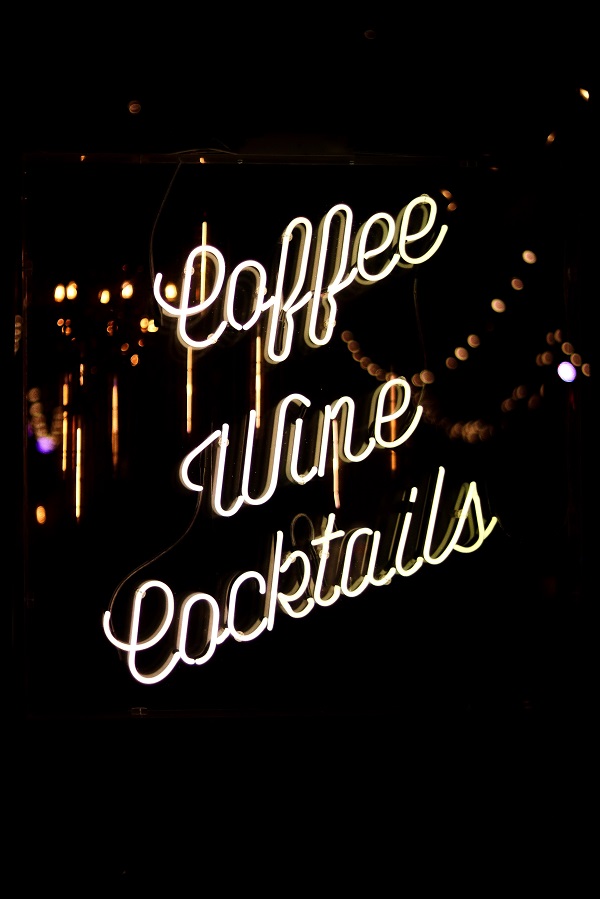 Several essential factors will impact your coffee shop revenue. Among them are your choice of a coffee shop location, the efficiency of your operations, sales volume, profit margin, and menu offerings.
Several essential factors will impact your coffee shop revenue. Among them are your choice of a coffee shop location, the efficiency of your operations, sales volume, profit margin, and menu offerings.
The good news as a coffee shop owner is that you have quite a bit of freedom to serve anything you want. Or rather, anything your customers will pay for!
Choosing the right product mix for your coffee shop could drive up your coffee shop revenue and personal income.
Among the things to sell at a coffee shop, you may consider:
- Espresso-based drinks (of course!)
- Loose Teas (herbal, green, and medicinal)
- Smoothies, juices, milkshakes, etc.
- Baked goods and desserts
- Sandwiches or light snacks
- Bags of whole roasted beans
- Merchandise items like mugs, T-shirts, magnets, etc.
- Locally produced items
- Home coffee brewing devices or supplies
- Beer and alcoholic cocktails
Today, we are focused on serving alcohol at your coffee shop. However, if you want more general information on what coffee shop items you might want to sell, read our post, Unique Things You Can Sell at Your Coffee Shop.
Should I serve alcohol at my coffee shop?
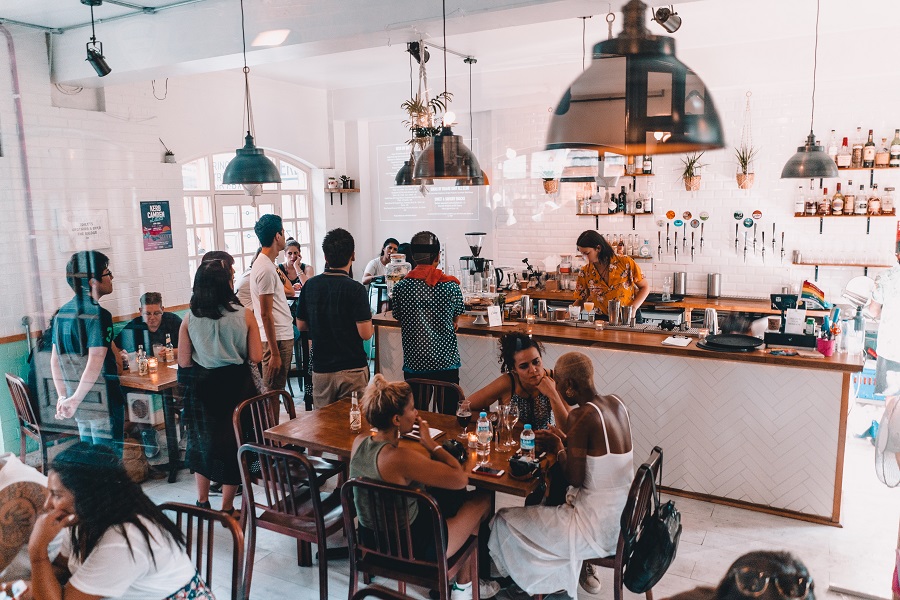
Serving Alcohol at Your Coffee Shop Offers a Competitive Advantage
Serving alcohol can be an exciting and profitable addition to your overall coffee menu. It can also be used as a competitive advantage, making your coffee shop unique and stand out.
However, introducing alcohol can change the feel of your coffee business.
As you think about adding alcoholic beverages to your coffee shop, consider how it will impact your coffee shop business concept, overall branding, and hiring choices.
Additionally, the change may – though not always – have a profound effect on determining who your target market is. In fact, consider that introducing alcohol could completely change who your ideal customer will be. This could have a profound effect on your coffee business as a whole.
Different categorizations of alcohol permits may vary from state to state, and they may also have additional requirements and fees. Therefore, you want to ensure you're up to speed on your prerequisites and county regulations before moving forward.
Now, let's take a few moments to consider the advantages and disadvantages of serving alcohol at your coffee shop.
Should I serve alcohol at my coffee shop?
Pros and Cons of Serving Alcohol at Your Coffee Shop
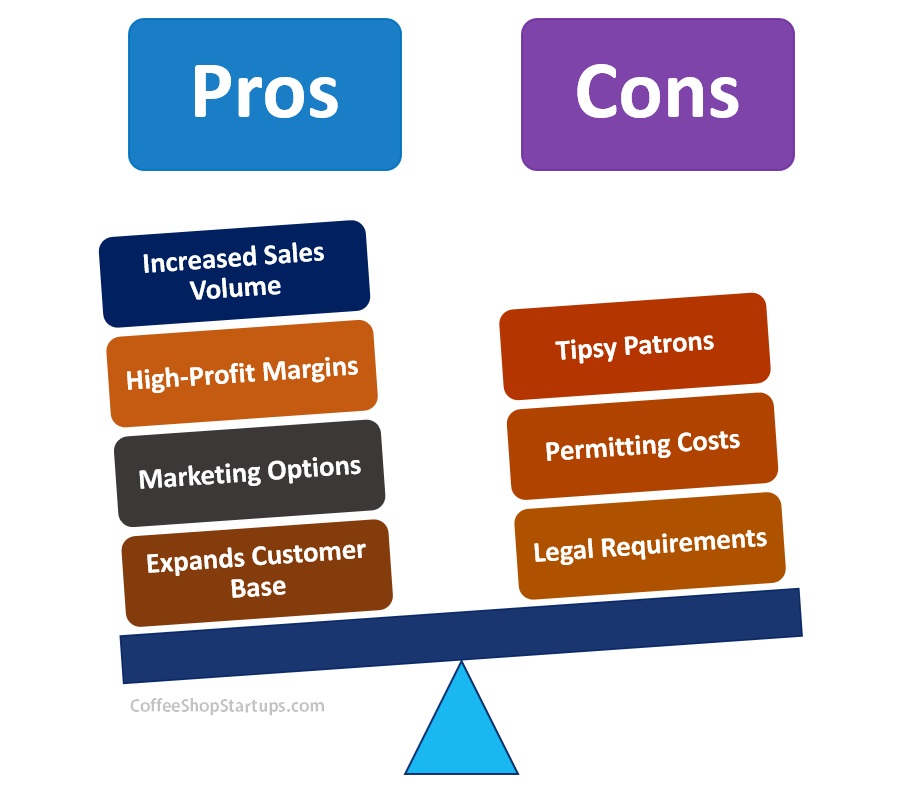
Advantages of Serving Alcohol
Alcohol Expands Your Customer Base
A primary benefit of serving alcohol is that it has the potential to attract many more customers. The more customers you have, the more significant the potential for more sales and profits.
With alcoholic beverages on your menu, you can expand your customer base from your ideal coffee shop customer to those who want to enjoy an afternoon drink with their friends.
Depending on your concept, you can expect wine connoisseurs and beer geeks to frequent your business along with your regular coffee lovers. In many settings, this may work very well.
This more extensive clientele can bring in significant revenue with a higher margin for more extended periods in the evening.
Marketing Opportunities
Any new product brings in more opportunities to promote your business. Serving alcohol can generate opportunities to market your coffee shop for extended evening hours or events.
While not marketing alcoholic beverages directly, you may promote evening events such as poetry slams, open mic nights, special musical guests, and other events – with drink specials.
You will want to find the best strategy to employ to promote your coffee shop that leverages your alcohol sales.
Expands Working Hours
Working hours at a typical coffee shop may range from 6 a.m. to 10 p.m. Some coffee shops open earlier, while others close earlier. Of course, your opening hours depend on several factors, including the availability of your target market.
However, broadly speaking, serving alcohol can extend your hours of operation.
Statistically, only 15% of Americans drink coffee at night. So, if you close your coffee shop at 5 or 6 p.m., your space is left unutilized for the rest of the evening. This means no revenue from 7 pm to 12 pm.
Serving alcohol at your coffee shop will allow you to extend your working time. And longer hours with more sales, generally, mean more profits.
It's not uncommon for people who buy your coffee in the morning to often be back to your café for a glass of wine after work – if you are conveniently located.
Increases Sales Volume
Your products at your coffee shop directly impact your sales numbers.
If you have thoroughly researched your target market, the more products you offer your customers, the more sales you will have – and the more money your coffee business will make.
It might be that serving alcohol at your coffee shop will appeal to your customers and provide another great way to boost your sales.
But the impact isn't just with the number of additional sales you will have. It's also the margins. Let's talk about that next.
Delivers High-Profit Margins
Alcohol can be a high-margin product. Coffee is a high-margin product too, but there is a price crest with coffee. For example, in the U.S., an average large Americano may have a price range from $2.90 to $3.50. An average coffee shop owner would be hard-pressed to charge $12.00 for an Americano. This price crest could be limiting; therefore, a high dependency on volume will play a key role in your coffee shop revenue.
Additionally, alcohol has a much longer shelf life, unlike coffee, which lasts about 14 to 21 days after roasting, so if you don't sell it quickly, you will be okay.
Typically, the average net profit margin for alcoholic beverages is 10-15% (emphasis here on the net). With high margins, you can significantly increase your profits with your investment.
Competitive Advantage
Offering a unique line of products not offered to your existing customers could give your coffee shop a unique appeal and distinct advantage over your competitors.
This competitive advantage could mean all the difference whether or not your coffee shop makes a profit or struggles to find its financial footing.
Should You Serve Alcohol at Your Coffee Shop?
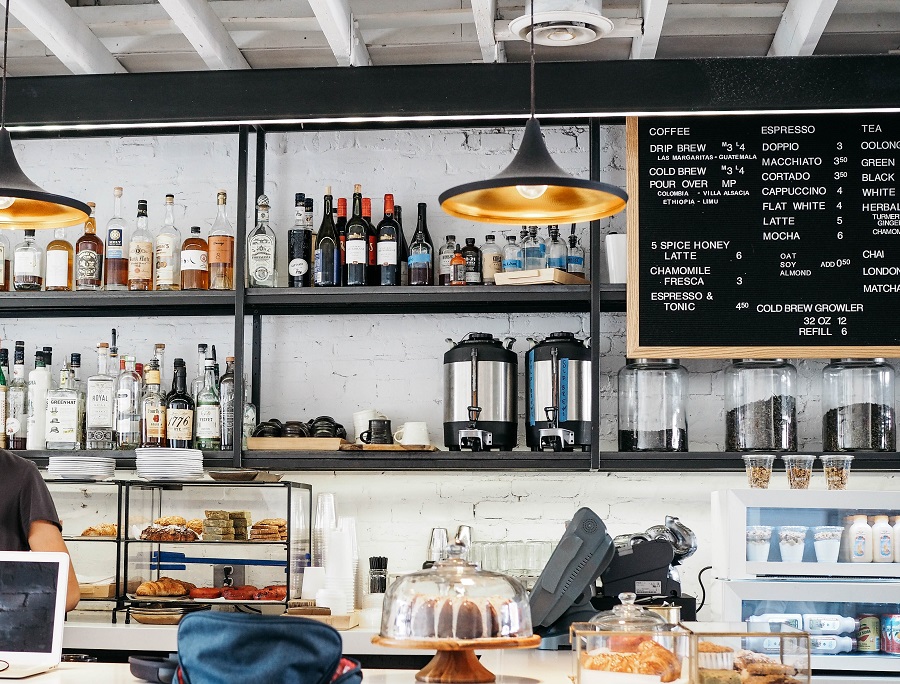
Disadvantages of Serving Alcohol
Legal & Administrative Requirements
The process of opening a coffee shop requires a lot of paperwork and effort on your part.
We've previously written about the steps it takes to open a coffee shop. Adding alcohol to your menu may require additional steps to obtain liquor licenses and alcohol tax permits. These steps may lead to other legal and administrative hoops and costs you'll have to go through.
Hiring Considerations
When you hire employees to work for your “hybrid” coffee shop, you may need to hire employees who are 21 years of age or older.
Additionally, you may need to look for baristas with some bartending experience or vice versa.
When you train your employees, you must train on two serving skills: coffee and alcohol. This may take up more time and cost more if you decide to invite different trainers or educators.
The hiring of additional staff working in the evening may also be required as well.
Dealing With Tipsy Patrons
Selling alcohol at your coffee shop implies that you may encounter tipsy customers from time to time.
Tipsy and can quickly turn into drunkenness.
Drunk people can sometimes act obnoxiously loud, rude, and threatening. It can be complicated to deal with their aggressive behavior, unwillingness to pay, or harsh complaints about your service. This may lead to incidents of criminal activity, complaints from neighbors, and a decrease in business.
Challenges of Staying Family-friendly
With alcohol on your menu, it'll be challenging to position your coffee shop as family-friendly. Some parents may not want to hang out at a coffee shop where alcohol is being consumed. Planning out your service, concept, and ambiance will help maintain a balance of having a family-friendly location and serving alcohol. Other coffee businesses struggle with being family-friendly, which requires additional planning and management.
As a Coffee Shop Owner, Your Attention Should be On:
Current Laws and Regulations
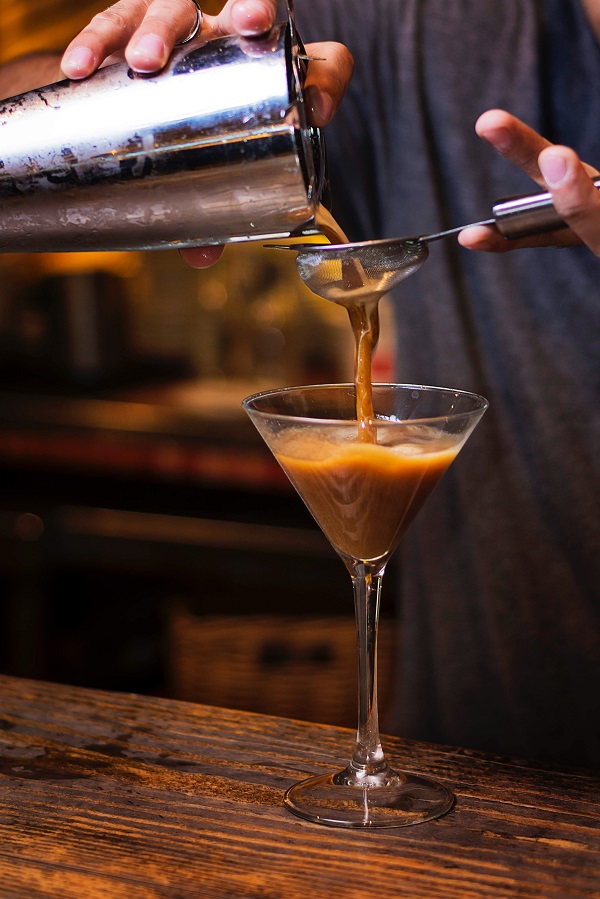 Before opening a coffee shop, you should thoroughly study the city's laws and state regulations that you are planning to serve in.
Before opening a coffee shop, you should thoroughly study the city's laws and state regulations that you are planning to serve in.
Your attention should be on the laws that regulate your permitting, which of your employees can serve alcohol, and when you can serve alcohol to your customers.
Every state, county, and city has various regulations regarding who can sell and purchase alcohol. As you know, in the U.S., the legal drinking age is 21 years old. This will also mean that your bartenders often need to be at least 21 years old as well.
States also regulate the retail sale of alcoholic beverages and businesses' licensing to sell different types of alcoholic beverages. Depending on the license you have, you may be allowed to sell only beer and wine or add liquor to that.
If you have any questions about current alcohol regulations, call up your local Alcohol Beverage Control board – or explore their website. They will explain existing rules, costs, as well as the permitting process.
Costs for Permitting and Liquor Licensing
A liquor license is a government-issued permit that allows you to sell alcoholic beverages. You must obtain the primary permit to serve alcohol at your coffee shop.
There are three general classes of liquor licenses: restaurant license, beer and wine license, and tavern license.
Depending on your state, a full liquor license can cost from $10,000 to $400,000, while only beer and wine licenses can cost just $3,000. It often comes down to local regulations in your city and state.
Zoning Requirements
Zoning laws are local regulations determining whether you can open a coffee shop, bar, or any commercial business in a particular location. They also determine the structure's size, seating, density, height, parking, penalties, and other specific requirements. Some businesses may be identified as bars and may or may not be zoned differently in your city, so be sure to check on any new zoning requirements.
Control Who Enters
Since the legal alcohol consumption age is 21 years old, you (and your employees) have a right and obligation to check identity documents and not allow people younger than the legal age.
State Agencies & Compliance
Before you apply for your liquor license, you may need to have additional paperwork in your hands.
This includes a business license, business insurance, food service license, health department permit, food handler's permit, employer identification number (EIN), sales tax permit, lease agreement, building and zoning permit, fire marshal permit, and some others.
Additionally, your health and building inspectors will come to check on your business, sometimes unexpectedly, so make sure everything is up to the codes.
Additional Taxes
Adding alcohol to your menu may add another level of taxes you may need to help with. Proper accounting and inventory management will be required. Indeed, states, cities, and counties will make sure that every tax owed to them will get paid, or they will shut your business down – or penalize you.
Should I serve alcohol at my coffee shop?
Other Considerations When Serving Alcohol
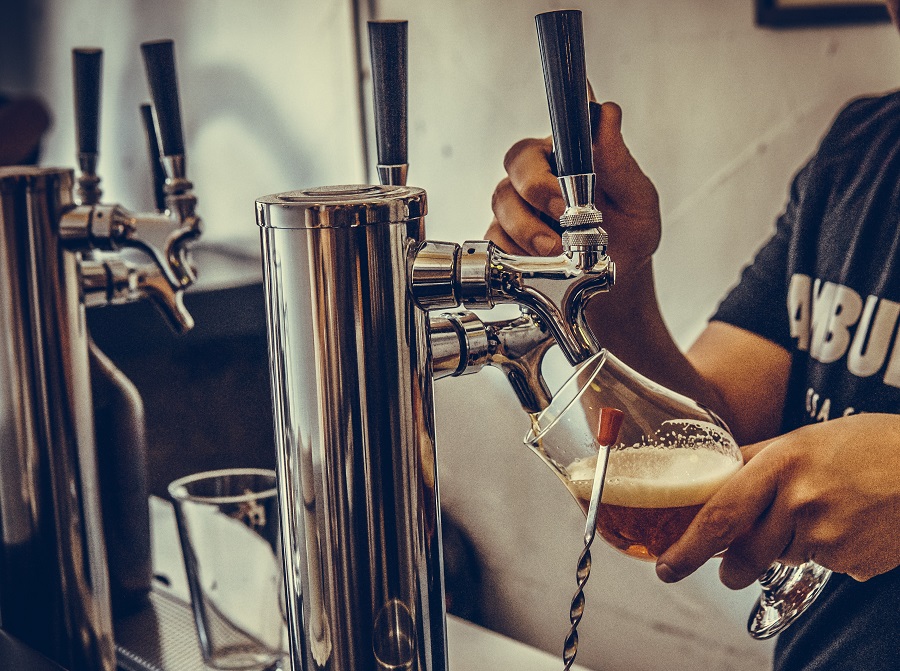
The potential of Brand Confusion
Hybrid coffee shops & bars are a currently trending coffee shop concept. However, it may require additional branding efforts to reach your customers.
Thoughtfully consider your branding and the lynchpin to your communication with the outside world.
Take the time to effectively define who you are and what you serve to every potential customer. You certainly don't want your customers to be confused about what you serve and when.
Would this impact your branding?
Absolutely.
From small things to the significant elements of your business – everything can be impacted.
Take your coffee shop name, for example. This may mean that your business name could combine these two products into your branding. Perhaps changing your coffee shop name includes the word “café” instead of “coffee shop” may be an option.
Your floor layout and design should allow for both types of activities: coffee in the morning and alcohol in the evening, for example. You may not want your business to look like a typical bar, which is inappropriate for your other activity – selling coffee in the morning.
Transition Time
You want to think through how a transition from a coffee shop to a bar will happen in the evening. Maybe you will decide that at 5 pm, you will want to make the music louder and free the counters to create more room for customers to stand and drink cocktails. At 7 p.m., you want to lower the blinds and dim the lights. At 10 p.m., you want to fully transform into a bar and put a 21-year-old rule. Again, check your local regulations and use them as guideposts to your ultimate strategy.
Marketing Your Coffee Shop or Bar
A hybrid coffee shop has a boatload of marketing potential due to its unique sales proposition (USP). However, try to send a clear message about what your business is up to before and after 5 p.m.
In fact, you can send several different messages appealing to different customer types: early-morning go-getters, dinner-time crowds, happy hour regulars, and late-night customers. This frees your hands to market in many different ways compared to other coffee shop businesses. Whether you are already open or starting your coffee shop from scratch, you want to re-evaluate your marketing strategy.
Coffee Shop Competition
When serving alcohol, you have a distinct advantage over neighboring businesses with only one function – serving coffee.
However, other local coffee shops and bars can pose a significant challenge to your operation if you don't plan it outright. Do a competitor analysis. Instead of competing toe-to-toe on price, see how you can better differentiate yourself from your customers using your menu, customer service, and overall ambiance. Undergoing a competitor analysis will be important for you to do as you plan out your coffee shop.
Other Coffee Shop Business Articles:
| Coffee Shop Ideas & Concepts | Coffee Shop Budget and Planning |
|---|---|
| 50 Coffee Shop Ideas & Concepts | 7 Ways to Open a Coffee Shop with No Money |
| Low-Cost Coffee Shop Ideas | Open a Coffee Shop Bookstore |
| How to Open a Drive-Thru Coffee Stand | How Much do Coffee Shop Owners Make? |
Should I serve alcohol at my coffee shop?
Developing a Coffee Shop Success Strategy
The strategy of opening a hybrid coffee shop is similar to opening a regular coffee shop.
You might want to review your menu, add additional equipment and items like cocktail glasses and shakers, and write a more detailed business plan laying out all aspects of serving alcohol.
Steps to successfully serve alcohol at your coffee shop:
- Write a business plan
- Determine your customer demographics
- Find an appropriate location
- Consider all local agencies involved
- Apply for and obtain all necessary permits
- Look for wholesale suppliers
- Develop a robust inventory system
- Choose the right Coffee Shop POS
Further Reading: How to Start a Coffee and Wine Bar
Serve Alcohol at Coffee Shops?
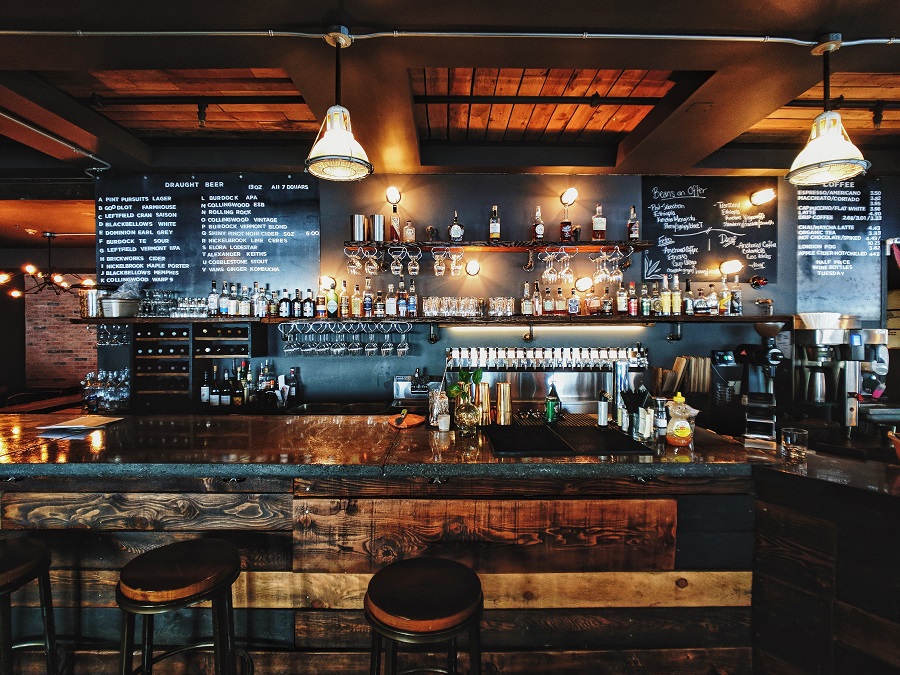
Related Coffee Shop Business Questions
What other things can I sell at a coffee shop?
You can sell plenty of unique things at your coffee shops, from typical products like coffee and tea to exclusive items like seasonal and specialty drinks and healthy food options. Think local! Sell local gift cards, postcards, flowers, other locally produced ceramics, jewelry, gifts, beeswax, candles, and – anything else that appeals to your local customers.
You can also partner up with local businesses or non-profit organizations and sell their merchandise, tickets, or CDs. Ensure that the things you sell at your coffee shop are well visible on the counter or dedicated shelving.
For an in-depth article, please read Unique Things You Can Sell at Your Coffee Shop.
How much money will I make as a coffee shop owner?
It's not easy to answer the question of how much a coffee shop owner makes.
As a coffee shop owner, you can decide if you want a fixed monthly salary or no salary until your coffee shop reaches a break-even point.
Your coffee shop revenue doesn't equal the money you take home with you.
If we talk specifically about coffee shop owner salary, it depends on factors like gross salary, taxes, health insurance, and your coffee shop's overall health. If planned outright, a coffee shop can be a very profitable venture. A successful coffee business owner can make between $120,000 – $175,000 per year in personal income.
For a more in-depth look at how much a coffee shop owner makes, read our article, How Much Money Does a Coffee Shop Make?
Are there other low-cost coffee business options available?
There are plenty of low-cost coffee shop options. For example, a coffee cart can cost only $400 to open up. With relatively little investment, you can have the potential to grow and develop your future business.
Opening a coffee truck or coffee trailer is an affordable option and will give you greater mobility to vend at various locations and events.
Think about lower rent, lower startup operational costs, and expanding your customer base with the help of another business.
For a more in-depth discussion, please read our article, Low-cost Coffee Shop Business Ideas.
Summary:
Should I Serve Alcohol at a Coffee Shop?
We covered many elements to consider when thinking about serving alcohol at your coffee shop.
When considering serving alcohol at your coffee shop, remember to:
- Write a coffee shop business plan
- Check out the local regulations
- Determine who your target market is
- Your Menu Will Impact Your Profits
- There are Benefits of Selling Alcohol at Your Coffee Shop
- Alcohol Expands Your Customer Base
- Provides Marketing Opportunities
- Expands Your Working Hours
- Increases Sales Volume
- Delivers High-Profit Margins
- There May Be Disadvantages of Selling Alcohol at Your Coffee Shop
- Legal & Administrative Requirements
- Hiring Consideration
- Dealing with Tipsy Patrons
- Will you stay “Family Friendly?”
- Focus on Your Local Regulations
- Know The Costs of Permitting and Liquor Licenses
- Zoning Requirements
- Controlling Who Enters
- State agencies and compliance
- Additional Taxes
- Be aware of potential brand confusion
- Choose a marketing strategy
- Do a competitor Analysis
- Develop a Success Strategy
Further Reading: How to Start a Coffee and Wine Bar

Ready to Get Started?
Start Your Dream Coffee Shop Business
Starting a coffee shop is exciting, but it can also feel overwhelming. Where do you start? What steps should you take? How do you avoid costly mistakes? That’s where the Professional Coffee Shop Startups Kit comes in. It’s designed to give you a clear, practical roadmap to opening a successful coffee business—without wasting time or money on guesswork.
Inside, you'll find:
![]() Expert interviews with real coffee shop owners and business experts.
Expert interviews with real coffee shop owners and business experts.
![]() An On-Demand 37-lecture course covering everything from business planning to daily operations.
An On-Demand 37-lecture course covering everything from business planning to daily operations.
![]() Editable coffee shop business templates, financial documents, checklists, and planning tools to keep you on track.
Editable coffee shop business templates, financial documents, checklists, and planning tools to keep you on track.
![]() A step-by-step startup guide that walks you through concept development, permits, branding, and more.
A step-by-step startup guide that walks you through concept development, permits, branding, and more.
![]() Cost-saving strategies to help you launch your coffee business on a budget.
Cost-saving strategies to help you launch your coffee business on a budget.
Whether planning a small coffee cart or a full-scale café, this kit is built to help you start confidently. Join the thousands of successful coffee entrepreneurs who started with a dream and a great plan. Your journey to coffee shop greatness begins right here!
Comprehensive. Proven. Affordable.
The Professional Coffee Shop Startup Kit
(Instantly Delivered To You)
Note: We don't provide any legal advice. Therefore, I strongly recommend that you do your due diligence and check with your state and local laws. This information is for educational purposes only.
* The information on this page is for educational purposes only. We do not offer legal or investment advice.


